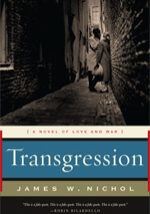In 701 B.C. the Assyrian empire was in its ascendancy. It had already vanquished the kingdom of Israel to the north including the capital at Samaria. It then prepared an assault on Judah and its capital at Jerusalem.
But in one of those significant events that changes the course of world history, Assyria was repelled. Jerusalem was saved until 586 B.C. when the Babylonians sacked the city, forcing its leadership class into exile.
Henry Aubin, in a major feat of scholarship, determines that Jerusalem was aided by a Kushite army from Africa which had marched northeast from the Nile valley. While the Bible attributes the Assyrian retreat to an angel and secular commentators cite pestilence, Aubin, in a meticulously documented work, demonstrates that an alliance with the African nation of Kush bolstered Jerusalem’s defences.
Kush, also known as Nubia, was located in what is now southern Egypt and northern Sudan. A monarchy that existed for more than 1000 years, from 900 B.C. to A.D. 350, Kushites held sway over Egypt from 712 B.C. to about 660 B.C. Of Egypt’s 31 dynasties, this, the 25th Dynasty, is the only one that all scholars agree, was black.
The commander of the Kushite expeditionary force was Taharqa (or as the Bible calls him Tirhakah). This Kushite prince, who had his own interests in halting Assyrian expansion, likely caught the aggressors by surprise as they prepared their siege of Jerusalem.
Aubin offers a thrilling military history and a stirring political analysis of the ancient world. He also sees the event as influential over the centuries.
The Kushite rescue of the Hebrew kingdom of Judah enabled the fragile, war-ravaged state to endure, to nurse itself back to economic and demographic health, and allowed the Hebrew religion, Yahwism, to evolve within the next several centuries into Judaism. Thus emerged the monotheistic trunk supporting Christianity and Islam.



“Exciting and well written. I couldn’t put it down.”
Joy Fielding
“Nichol’s vivid prose, harrowing plot and the defiant Adele will keep readers invested in this love story–cum–murder mystery until the very last page.”
Publishers Weekly
“Nichol presents this can’t miss melodrama..with an eye as sensitive to petty humiliations as to life-changing catastrophes, and the result is an odyssey as piercing in its details as it is familiar in its outline.â€
Kirkus
“This is a brilliantly constructed novel…Nichol perfectly captures the sense of hope and hopelessness of those in the midst of war, as well as the pain and terror that continue after the war has ended. It is a heart-wrenching, haunting, beautiful book.”
Historical Novels Review
*Editors’ Choice
“This is a fascinating novel of love amid the strife of war. Unalterable life decisions turn into regrettable consequences and the author guides the reader through Adele’s journey and another concurrent drama, which opens in a small Canadian town in 1946. The ultimate mix of these two plotlines is absolutely riveting to the end.”
The Romance Connection
“This exciting historical thriller contains two terrific subplots (in Europe during WWII and in Canada just after the war) that merge through Adele. The story line is haunting as issues of what is a transgression arise…readers will highly regard this look back at the 1940s through the ‘dreamy’ eyes of a French exile.”
bookcrossing.com blog
James W. Nichol is author of Midnight Cab which is published in several countries including Germany where it is a best seller with sales in excess of 500,000 copies. It was short listed for the Gold Dagger award in the UK, and won the Canadian Crime Writers Award for the best first novel.

HarperCollins US 2009
der Club book club Germany
Goldmann Germany 2007
McArthur Canada 2008
Wydawnictwo C&T Poland 2011
Transgression
By the bestselling author of Midnight Cab
In 1946, a little girl finds a severed finger in a Canadian field. It points to a grisly crime that occurred nearby. It also points to the past, to the harrowing events in the life of a young French woman, Adele Georges, in war-torn Rouen.
When Adele’s beloved father is captured by the German forces, she makes inquiries at the local authorities. A German soldier, 19 years old and far from home, tries to help her navigate the bureaucracy. Love grows across the enemy lines, with devastating consequences.
Adele, a seamstress in a factory, is exposed as a “horizontal collaborator†and tortured with other women in the town square. Her lover Manfred has been transferred, and Adele, abandoned by her family, her head shaven, is alone.
Despairing that Manfred has been killed, Adele yields to the protective embrace of a Canadian soldier who marries her and brings her home as a war bride to his small town. He too is scarred by war and twisted by the turmoil of reentry. Adele, stranded on foreign shores, harboring her shameful secret of consorting with the enemy, is terrified of being unmasked.
When Manfred reappears, trying to recapture their youthful love, everyone is tested with deadly consequences. Yet, redemption, truth and renewal are also possible.
James Nichol also is a distinguished playwright and screenwriter whose work has been widely performed. He lives in Stratford, Ontario, Canada.
Short-listed for the Arthur Ellis Award for Best Novel 2009.